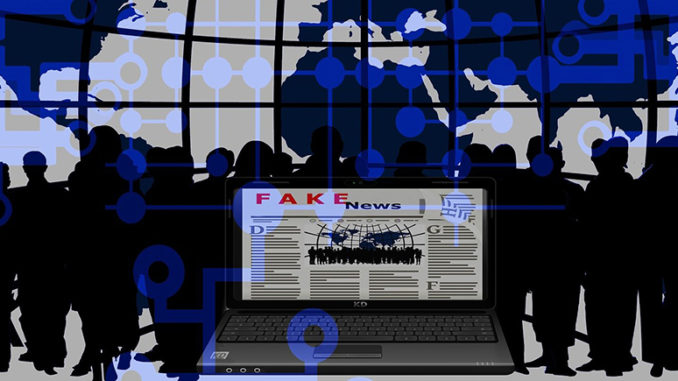
Guest Editorial By Don Sutherland
The “fake” media had been unrelenting in its politicized reporting. Something had to be done. Freedom of the press could no longer be used to shield the media and its journalists who regularly engaged in “false” reporting.
Is that new anonymously sourced reporting concerning Trump Administration thinking? After all, President Trump regularly rails against the news media, including Saturday’s rally at Washington, Michigan. He even tweeted, “With all of the Fake News coming out of NBC and the Networks, at what point is it appropriate to challenge their License?” on October 11, 2017 to near-deafening silence from the House, Senate, and self-proclaimed “constitutionalists” on Talk Radio and TV. He earned 95,999 “likes” for that tweet.
Is it the latest “fake news?” No.
That was Venezuela in 2009 under President Hugo Chavez. A collision with the press had been building for some time. Freedom House reported:
Although the constitution provides for freedom of the press, the media climate is permeated by intimidation, sometimes including physical attacks, and strong anti-media rhetoric by the government is common… The 2004 Law on Social Responsibility of Radio and Television gives the government the authority to control the content of radio and television programs. According to the Inter American Press Association, the government “has used public funds to establish many publications, television and radio stations which enjoy unlimited budgets.” …When explaining the nonrenewal of RCTV’s license in 2007, the government referred repeatedly to the station’s “undemocratic” actions during the 2002 coup attempt…
All those efforts had not produced the desired effect of a loyal media beholden to the Chavez Government. More needed to be done. In 2009, a “Draft Special Law Against Media Crimes” was proposed. Article IV of that legislation explained:
Media crimes are the actions or omissions that may be detrimental to the right to timely, accurate, and impartial information, that may endanger social peace, security and independence of the nation, public order, stability of the State institutions, public health or public morality, that may create a feeling of impunity or insecurity and that are committed in the mass media.
Among other things, who would determine what “actions or omissions” were “detrimental to the right to timely, accurate, and impartial information?” Who would determine what “timely, accurate, and impartial information” actually was? Who would determine what reporting endangered “social peace, security and independence of the nation, public order, stability of state institutions, public health or public morality?”
The Chavez Government. More specifically, its judiciary. However, Venezuela’s judiciary had been packed with judges based on political and personal loyalty to President Chavez. Thus, journalists could expect prison sentences for committing “media crimes.”
On July 31, 2009, the BBC reported:
Journalists could face up to four years in prison for publishing material deemed to harm state stability.
Public prosecutor Luisa Ortega Diaz, who proposed the changes, said it was necessary to “regulate the freedom of expression” without “harming it”…
Under the draft law on media offences, information deemed to be “false” and aimed at “creating a public panic” will also be punishable by prison sentences.
The proposed law met a storm of criticism from international human rights organizations. Frank La Rue, the UN Special Rapporteur on the promotion and protection of the right to freedom of opinion and expression warned that the proposed law “could be used as a tool for political intimidation, which may lead to the criminalization of dissent and criticism.”
The legislation did not become law. Nevertheless, abuses against the news media and journalists continued.
The United States during President Trump’s first term has not reached that stage, but some parallels exist. The President, like Chavez and his government, regularly assails the media and relentlessly seeks to discredit it. The President tweeted about challenging NBC’s license. A U.S. Senator ominously complained about a lack of political “neutrality” on Facebook and said that the government might need to break up the popular Social Media company.
At this writing, the U.S. Constitution remains far more secure than Venezuela’s was. The institutions responsible for its implementation are far stronger and more independent than those in Venezuela, even as some of them are under political attack. So, at least for now, any political effort to suppress reporting is very unlikely to succeed.
